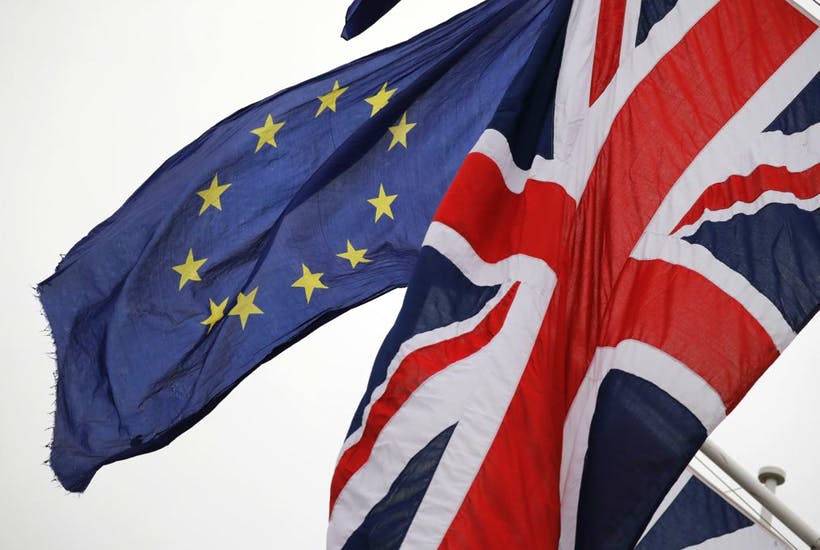We will export less. There will be less competition. Prices will be higher and productivity lower. Textbook economics tells us that trade friction – that is anything that makes it harder for goods or services to flow across borders – is a very bad thing. So why is the British Government suddenly accepting trade frictions with the EU?
As chief Brexit negotiator David Frost made clear in his key speech yesterday, the UK is willing to accept some restrictions on trade with the rest of Europe if it has to. The answer? Because they are not necessarily as bad as the textbooks predict and the prize is a big one.
True, in an ideal world we would have completely free trade with the EU. There would be no tariffs or quotas. We would remain members of the Single Market. Our businesses could sell whatever they wanted anywhere in the EU without any restrictions and their firms could sell whatever they wanted here. There is a snag, however. At the moment that isn’t on offer. The EU is only offering free trade at the cost of permanent regulatory alignment. We can avoid the tariffs and quotas if we want to, but only if we are willing to accept its rules and regulations on manufacturing standards, labour laws, state aid and possibly even taxes for ever and ever.
Of course, it is perfectly at liberty to do so. Michel Barnier and his colleagues may well have decided the cost of trade friction is so high that we will eventually give in. If so, they are wrong. Why? There are four reasons.
First. the costs are relatively trivial. World Trade Organisation rules remove most, if not all, quotas and tariffs and even if there are tariffs the exchange rate will quickly compensate for them. There will be more paperwork, especially to prove where stuff comes from, but it is just mid-level administrative tasks. It costs money but hardly astronomical sum.
Secondly, we can mitigate those costs by adopting unilateral free trade. So long as we don’t retaliate to trade quotas and tariffs from the EU with any restrictions on access to our market, we only face them on exports, and not imports, and so half the costs.
Next, 41 per cent of the UK’s exports to the EU are in services. And although those do face barriers, they are not in the form of tariffs or quotas, so a trade deal won’t make much difference either way (and we have a big surplus in services with the EU anyway).
Finally, if we do end up trading less with the EU, we will have a lower deficit. And so a slightly more stable financial system, given that trade deficits are generally viewed as a major source of instability. So while there will be some negatives, that will be a plus.
Against that, the cost of accepting what Brussels is demanding is very, very high. If we accept permanent regulatory alignment, we will lose the opportunity to build new industries especially in new technologies where the EU has chosen to be so restrictive it has become virtually impossible to create new companies, and certainly nothing on the scale of the American and Chinese giants. Trade frictions are not great. We would rather they didn’t exist. But for the UK, they will be a minor cost and certainly worth paying to be outside of the EU’s regulatory system.






Comments